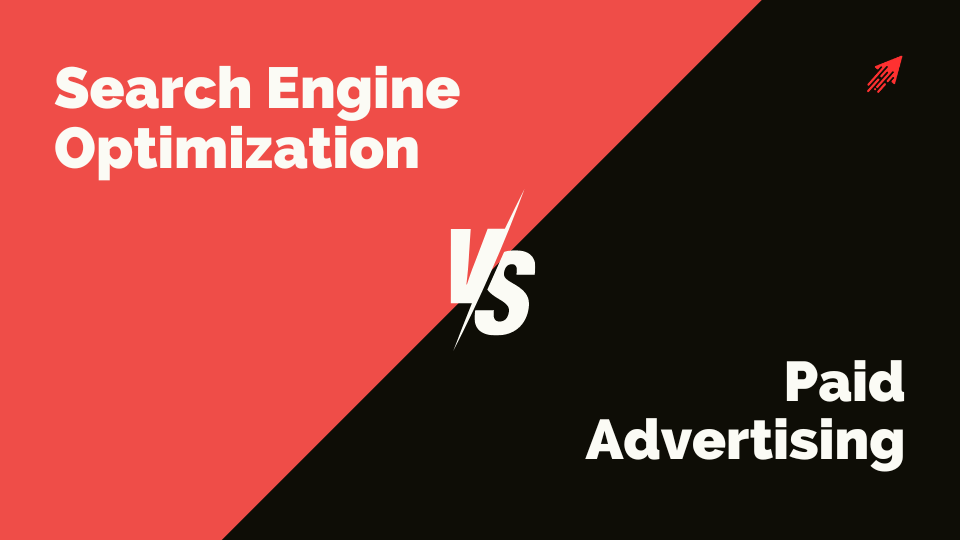Have you ever wondered if your business is ranking for the right keywords? Picking the right keywords can mean the difference between getting lost in search results and attracting the customers you need.
I’ve seen businesses waste time targeting the wrong terms—too broad, too competitive, or not relevant enough.
In this article, I’ll show you how to find the keywords that matter most for your business. Let’s figure out what your business should rank for and why it matters.
Quick Takeaways
- Use branded, service, location-based, and long-tail keywords.
- Research with tools like Google Keyword Planner.
- Avoid keyword stuffing and overly broad terms.
- Optimize titles, meta descriptions, and content.
- Track and adjust using Google Analytics.
What Are Keywords and Why Do They Matter?
Keywords are the words or phrases people type into search engines when looking for information. For example, if someone needs a plumber in Jefferson City, they might search “emergency plumber Jefferson City.” These keywords connect their search to businesses offering those services.
Why Keywords Are Essential
Keywords act as a bridge between your business and potential customers. By targeting the right keywords, you can make sure your website appears when people search for the products or services you offer.
Here’s why they matter:
- Visibility: Ranking for the right keywords makes it easier for people to find you. Studies show that 75% of users never scroll past the first page of search results.
- Relevance: Keywords help search engines understand what your business offers, ensuring the right audience sees your website.
- Traffic and Growth: Businesses that rank well for targeted keywords see more visitors, leading to more sales or inquiries.
The Right Keywords Equal the Right Customers
If you’re a small bakery, ranking for “fresh bread near me” can bring in local customers who are ready to buy. On the other hand, ranking for “how to bake bread” might not help much since it targets people looking for DIY tips.
Keywords are about connecting with your audience at the right time. They help you appear in front of the people who need your products or services. Understanding their importance is the first step toward growing your business online.
Types of Keywords Your Business Needs
Not all keywords are created equal. To rank effectively and attract the right audience, your business needs a mix of keyword types. Here are the ones to focus on:
1. Branded Keywords
These include your business name or variations of it. For example, if your company is “Jefferson City Landscaping,” branded keywords would be “Jefferson City Landscaping services” or “Contact Jefferson City Landscaping.” Ranking for these ensures that customers looking specifically for your business can easily find you.
2. Service or Industry Keywords
These are terms related to the services or products you offer. For example:
- A plumber might target “water heater repair” or “leak detection services.”
- A bakery could focus on “custom birthday cakes” or “fresh pastries near me.”
Service keywords help connect your business with people actively searching for what you provide.
3. Location-Based Keywords
If your business serves a specific area, location-based keywords are essential. They combine your service with your city or region, like:
- “Roof repair in Jefferson City”
- “SEO agency near me”
Local keywords help you rank in searches by nearby customers, which is crucial for small businesses.
4. Long-Tail Keywords
These are longer, more specific phrases like “affordable pest control services in Jefferson City” or “best coffee shops with Wi-Fi near me.” They may have lower search volume but are less competitive and often lead to higher conversions. Long-tail keywords attract customers who are closer to making a decision.
Finding the Right Mix
Each type of keyword plays a unique role in your strategy. Branded keywords secure your identity, service keywords attract buyers, location-based keywords boost local visibility, and long-tail keywords bring targeted traffic. By combining these, you create a balanced approach that drives both visibility and conversions.
Examples of Keywords Your Business Should Rank For
The keywords you should target depend on your business type, services, and location. Here are some examples to guide you:
1. Local Service Business (Plumber in Jefferson City)
- “Emergency plumber Jefferson City”
- “Water heater repair near me”
- “Affordable plumbing services in Jefferson City”
2. Retail Store (Boutique in Columbia)
- “Trendy women’s clothing in Columbia”
- “Best boutique for accessories Columbia MO”
- “Local fashion stores near me”
3. Professional Service (SEO Agency)
- “SEO company Jefferson City”
- “Local SEO services for small businesses”
- “Affordable digital marketing agency Jefferson City”
4. Restaurant or Café
- “Best coffee shop in downtown Jefferson City”
- “Family-friendly restaurants near me”
- “Vegan breakfast options Jefferson City”
5. E-Commerce Business
- “Buy custom phone cases online”
- “Best wireless headphones for under $50”
- “Eco-friendly home decor shipping nationwide”
6. Health and Wellness (Gym or Personal Trainer)
- “Affordable personal trainer Jefferson City”
- “Best yoga classes for beginners near me”
- “24-hour gym in Jefferson City”
7. Event Services (Photographer or Venue)
- “Wedding photographer Jefferson City MO”
- “Affordable event venues near me”
- “Family portrait photography Jefferson City”
Why These Keywords Work
These examples combine service or product terms with local or specific details. They reflect what customers are actively searching for, helping your business show up in relevant results.
Targeting keywords like these ensures you’re connecting with people who are ready to hire, buy, or visit!
How to Identify the Right Keywords
Choosing the right keywords is key to reaching your target audience. It’s not just about guessing what people search for—you need a strategy. Here’s how to find keywords that work for your business.
1. Start with Your Customers
Think about what your customers might type into Google when they need your products or services. For example:
- If you own a gym, they might search “best fitness center near me” or “affordable personal trainers.”
- If you run a landscaping business, searches like “lawn care services in [your city]” are likely.
By putting yourself in your customers’ shoes, you can create a list of possible keywords to start with.
2. Use Keyword Research Tools
Tools like Google Keyword Planner, Ubersuggest, or AnswerThePublic can help you discover keywords people are actually searching for.
- Google Keyword Planner shows search volume (how many people search a term) and competition level (how hard it is to rank).
- Ubersuggest provides related keywords and shows how competitive they are.
- AnswerThePublic displays common questions people ask about your topic, giving you long-tail keyword ideas.
3. Analyze Your Competitors
Check what keywords your competitors are ranking for. Tools like SEMrush or Ahrefs let you see their top-performing keywords. Look for gaps where you can target terms they might have missed.
4. Balance Search Volume and Relevance
Don’t just go for the most-searched keywords. Sometimes, these are highly competitive and hard to rank for. Instead, focus on:
- High Relevance: Keywords directly related to your products or services.
- Medium or Low Competition: Easier keywords where you can outrank competitors.
For example, instead of “fitness center,” target “affordable fitness center Jefferson City” to narrow your audience and boost your chances of ranking.
5. Test and Adjust
Start using your chosen keywords and track how they perform. Use tools like Google Analytics to see which keywords drive traffic and adjust your strategy as needed.
By following these steps, you’ll identify keywords that match your audience’s needs and improve your chances of showing up where it matters most: on the first page of search results.
Mistakes to Avoid When Choosing Keywords
Choosing the wrong keywords can waste time and effort, leaving you with little to no results. To get the best return on your SEO efforts, avoid these common mistakes:
1. Keyword Stuffing
Keyword stuffing is when you overuse a keyword in your content, like:
“We offer the best pizza in Jefferson City. If you want the best pizza in Jefferson City, visit us today!”
This not only makes your content sound unnatural but can also lead to penalties from search engines. Instead, use keywords naturally and focus on creating valuable content for your readers.
2. Targeting Overly Broad Terms
Trying to rank for broad terms like “pizza” or “fitness” is a mistake because these keywords are highly competitive. Unless you have a huge budget and a big team, it’s better to target more specific, less competitive terms, like “thin-crust pizza in Jefferson City” or “affordable fitness classes near me.”
3. Ignoring Search Intent
Search intent is the reason behind a user’s search. For example:
- Someone searching “how to fix a leak” wants DIY tips.
- Someone searching “plumber near me” is ready to hire a plumber.
If your keywords don’t match the intent of your target audience, your efforts won’t bring results.
4. Neglecting Long-Tail Keywords
Long-tail keywords may have lower search volume, but they’re often more targeted and lead to higher conversions. For example, “best plumber Jefferson City” attracts users who are closer to making a decision than just “plumber.” Neglecting these can mean missing out on ready-to-buy customers.
5. Overlooking Local Keywords
If your business serves a specific area, ignoring local keywords is a big mistake. A keyword like “landscaping in Jefferson City” will drive local traffic, while “landscaping” may attract visitors from places you don’t serve.
Why Avoiding These Mistakes Matters
Using the wrong keywords can lead to low traffic and wasted effort. By avoiding these mistakes and focusing on relevance, intent, and specificity, you’ll attract the right audience and see better results. Take the time to plan your keywords carefully—it pays off in the long run.
How to Rank for the Right Keywords
Once you’ve identified the best keywords for your business, the next step is to optimize your website so it ranks for those terms. Here’s how to do it effectively:
1. Optimize Your Website
Make sure your keywords appear naturally in key parts of your site:
- Titles and Headers: Use your main keywords in your page titles (H1 tags) and subheadings (H2 or H3 tags). For example, “Affordable Plumbing Services in Jefferson City.”
- Meta Descriptions: Include keywords in meta descriptions, the short summaries that appear in search results. These help improve click-through rates.
- Content: Add keywords naturally throughout your content. Focus on readability—don’t force them in.
2. Create High-Quality Content
Search engines prioritize websites that provide valuable, relevant content. For example:
- Write blog posts that answer common customer questions, like “How to Choose the Best HVAC System.”
- Create guides or FAQs that align with your target keywords.
This builds trust with your audience and increases your chances of ranking higher.
3. Build Backlinks
Backlinks, or links from other websites to yours, are a key ranking factor. To earn quality backlinks:
- Collaborate with local businesses or organizations.
- Share your content on social media to encourage links.
- Write guest posts for industry blogs and include links back to your site.
The more authoritative backlinks you have, the better your site will rank for competitive keywords.
4. Use Analytics to Track Progress
Tools like Google Analytics and Google Search Console help you see how your keywords are performing. Check metrics like:
- Which keywords are driving traffic.
- How long visitors stay on your pages (engagement).
- Which pages are ranking well in search results.
If certain keywords aren’t performing, tweak your content or try new ones.
5. Update Your Strategy Regularly
SEO isn’t a one-time effort. Search trends change and competitors may start targeting the same keywords. Stay ahead by:
- Adding new keywords to your content.
- Refreshing old blog posts with updated information and keywords.
- Monitor your competitors’ rankings and adjust as needed.
Why This Matters
Ranking for the right keywords takes time and consistent effort, but the rewards are worth it. Businesses that rank on the first page of Google get 91% of all search traffic, so optimizing for the right terms can significantly increase your visibility and drive more leads or sales.
These steps will position your business to rank higher, connect with your target audience, and grow online.
Wrapping Up
Choosing and ranking for the right keywords is one of the most important steps in growing your business online. The right keywords connect you with your ideal audience, boost your visibility, and drive meaningful traffic to your site.
By focusing on branded, service, location-based, and long-tail keywords, you can create a strategy that reaches customers at every stage of their journey. Avoid common mistakes like keyword stuffing or targeting overly broad terms, and instead, focus on relevance and intent.
Remember, SEO is a long game. Keep tracking your performance, updating your keywords, and refining your strategy as you go. With time and consistent effort, you’ll see your website climb the rankings and bring in more customers.
If you’re ready to take your keyword strategy to the next level, contact ClickDaddy SEO today. We’re here to help you rank for the keywords that matter most to your business!


